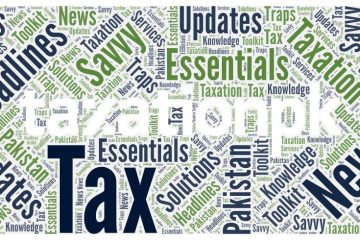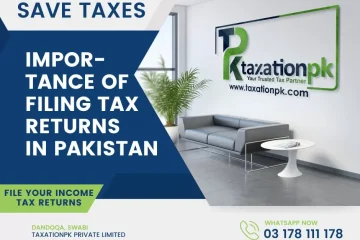Tax collection is a critical function of any government. It is the primary source of revenue for the government, which is used to fund public services such as education, healthcare, and infrastructure. In Pakistan, local governments are responsible for collecting a variety of taxes, including property taxes, sales taxes, and excise taxes.
The collection of local taxes in Pakistan is a complex and challenging process. There are a number of factors that contribute to this, including:
- A large informal economy
- A lack of awareness of tax laws and regulations
- A weak tax administration system
- Corruption
Despite these challenges, the government of Pakistan is committed to improving the collection of local taxes. In recent years, the government has taken a number of steps to address these challenges, including:
- Increasing awareness of tax laws and regulations
- Strengthening the tax administration system
- Fighting corruption
These efforts have had some success, but there is still much work to be done. The government of Pakistan needs to continue to invest in improving the collection of local taxes in order to ensure that all citizens contribute to the development of the country.
Tax collection is a critical function of any government. It is the primary source of revenue for the government, which is used to fund public services such as education, healthcare, and infrastructure. In Pakistan, local governments are responsible for collecting a variety of taxes, including property taxes, sales taxes, and excise taxes.
Background:
The collection of local taxes in Pakistan is a complex and challenging process. There are a number of factors that contribute to this, including:
- A large informal economy
- A lack of awareness of tax laws and regulations
- A weak tax administration system
- Corruption
Challenges:
The large informal economy in Pakistan is a major challenge to the collection of local taxes. The informal economy is the part of the economy that is not subject to government regulation or taxation. It is estimated that the informal economy accounts for up to 60% of the Pakistani economy. This makes it difficult for the government to collect taxes from businesses and individuals operating in the informal economy.
Another challenge to the collection of local taxes in Pakistan is a lack of awareness of tax laws and regulations. Many people in Pakistan are not aware of their tax obligations. This is due to a lack of education and outreach by the government.
The tax administration system in Pakistan is also weak. This makes it difficult for the government to collect taxes efficiently and effectively. The tax administration system is underfunded and understaffed. This makes it difficult for the government to enforce tax laws and regulations.
Corruption is another major challenge to the collection of local taxes in Pakistan. Corruption occurs when government officials use their position to enrich themselves or their friends and family. Corruption can take many forms, such as bribery, extortion, and nepotism. Corruption makes it difficult for the government to collect taxes fairly and efficiently.
Government initiatives:
The government of Pakistan is aware of the challenges to the collection of local taxes. In recent years, the government has taken a number of steps to address these challenges, including:
- Increasing awareness of tax laws and regulations
- Strengthening the tax administration system
- Fighting corruption
The government has increased awareness of tax laws and regulations through a number of initiatives, such as public awareness campaigns and educational programs. The government has also strengthened the tax administration system by increasing funding and staffing. The government has also taken steps to fight corruption, such as increasing penalties for corrupt behavior and creating an anti-corruption watchdog agency.
Successes:
The government’s initiatives to improve the collection of local taxes have had some success. The government has collected more taxes in recent years. The government has also improved the efficiency of the tax administration system. However, there is still much work to be done. The government needs to continue to invest in improving the collection of local taxes in order to ensure that all citizens contribute to the development of the country.
Conclusion:
The collection of local taxes is a critical function of any government. It is the primary source of revenue for the government, which is used to fund public services such as education, healthcare, and infrastructure. In Pakistan, local governments are responsible for collecting a variety of taxes, including property taxes, sales taxes, and excise taxes.




